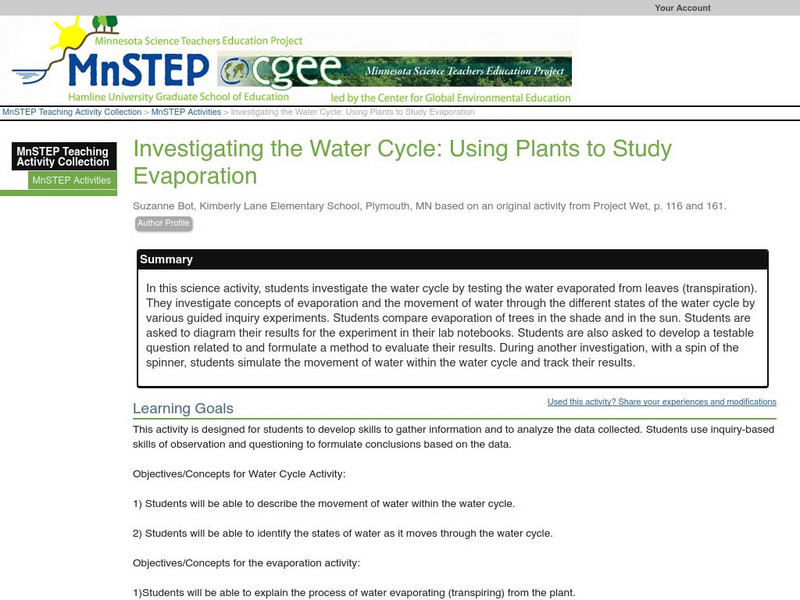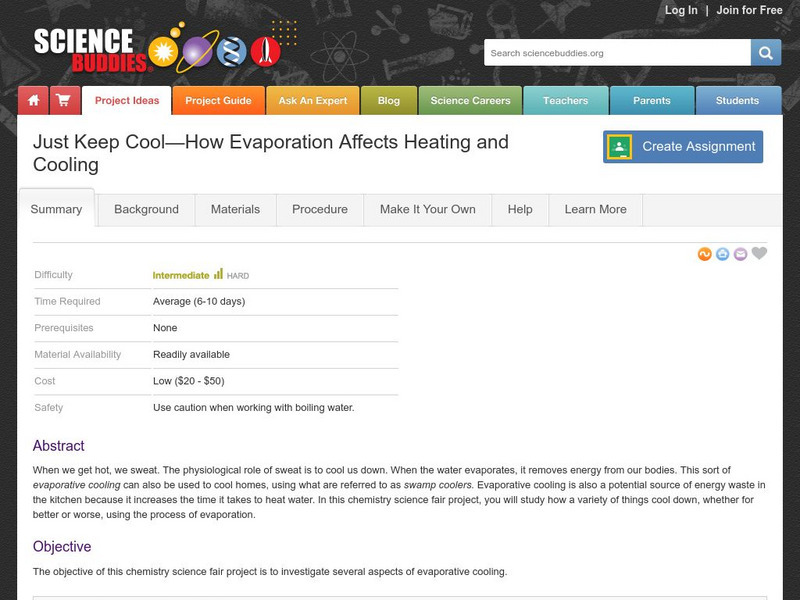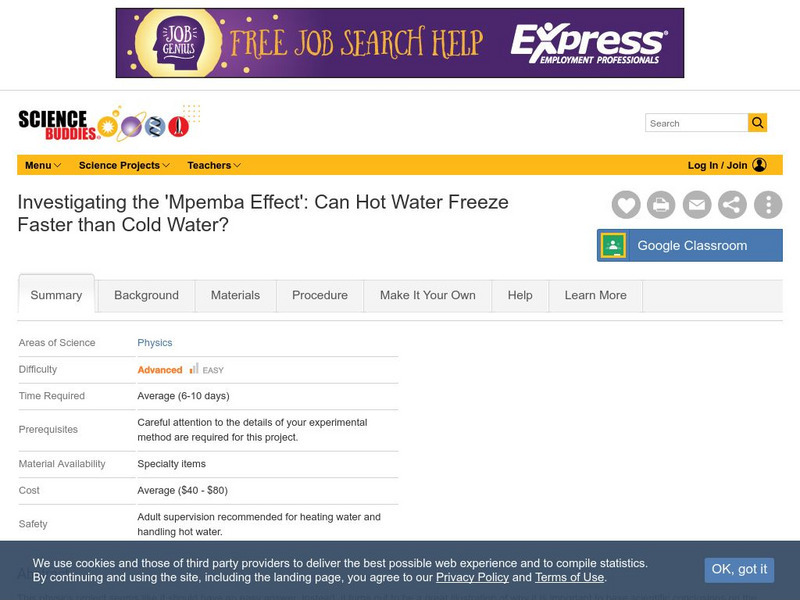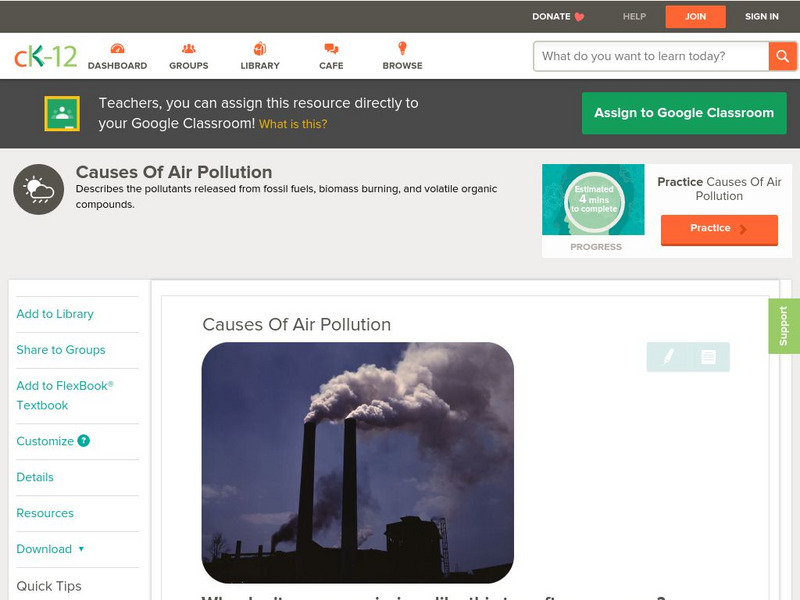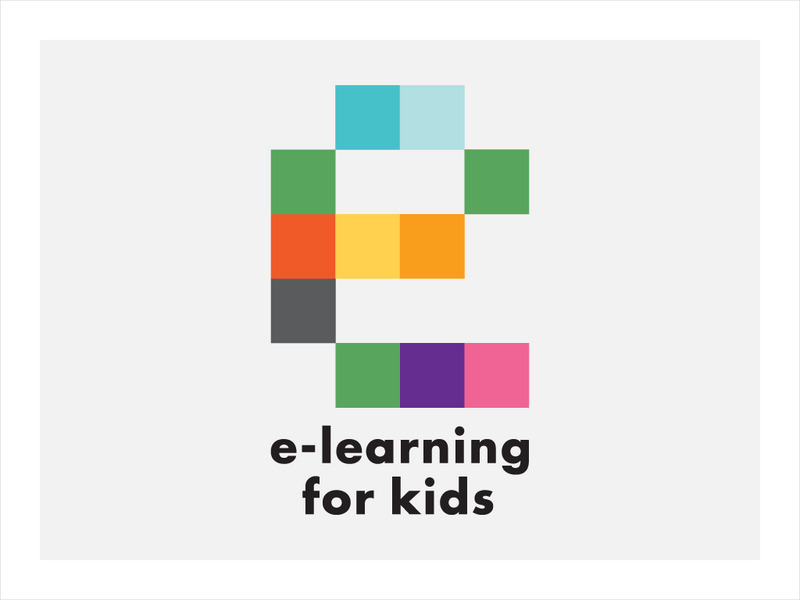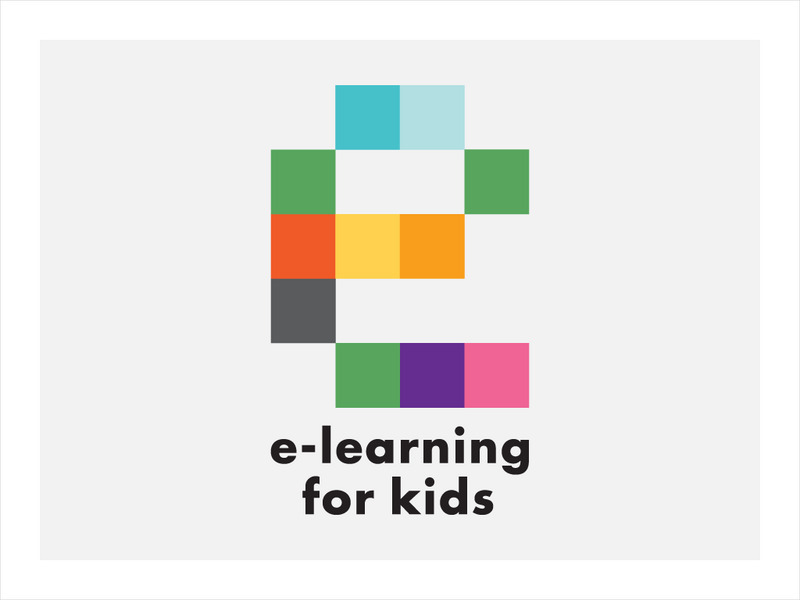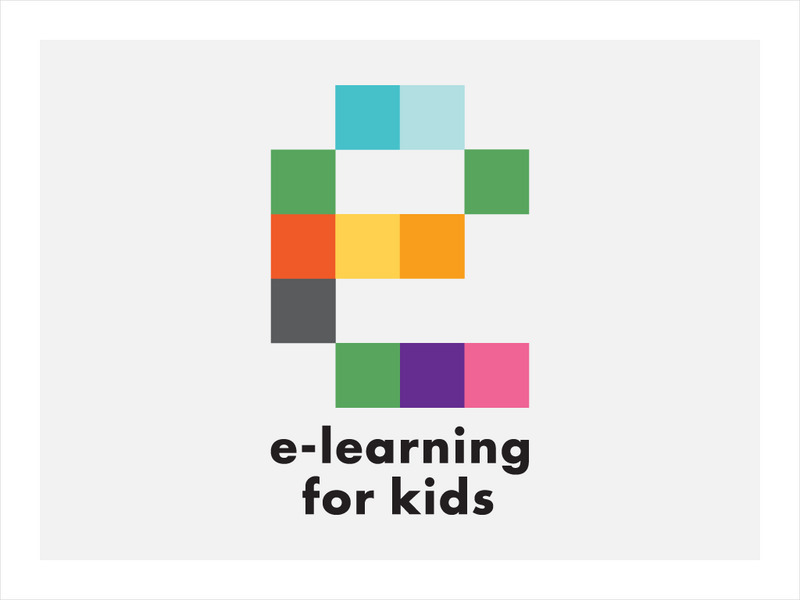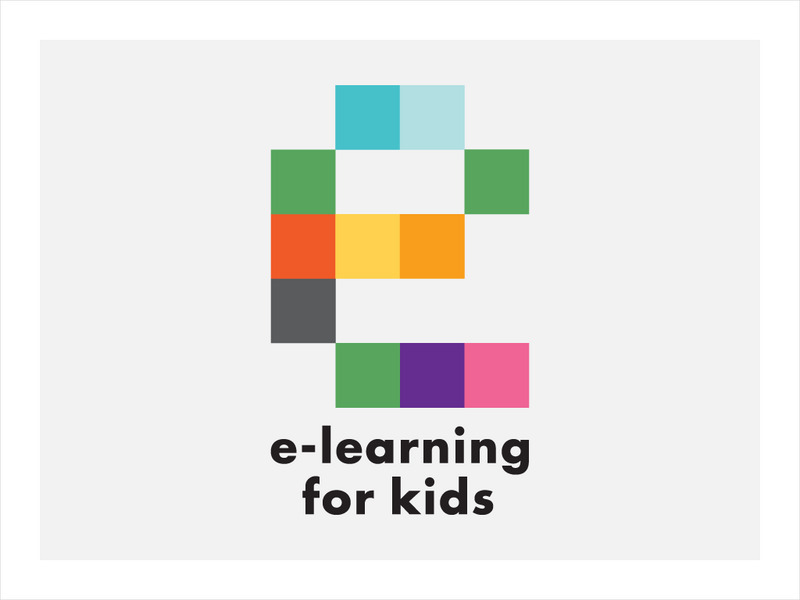Science Buddies
Science Buddies: What's the Fastest Way to Cool a Soda?
When you are craving an ice cold drink of soda, the last thing you want is to be stuck with a bunch of soda cans at room temperature. This fun science experiment sends you on a discovery to find the fastest way to cool soda with...
Science Education Resource Center at Carleton College
Serc: Investigating the Water Cycle: Using Plants to Study Evaporation
In this science activity, young scholars investigate the water cycle by testing the water evaporated from leaves (transpiration). They investigate concepts of evaporation and the movement of water through the different states of the...
Science Education Resource Center at Carleton College
Serc: Investigating the Water Cycle: Evaporation
For this water cycle activity, students investigate the evaporation process by participating in an outdoor evaporation experiment held on the school grounds. Students will determine where evaporation takes place the fastest and how...
Science Buddies
Science Buddies: Just Keep Cool How Evaporation Affects Heating and Cooling
When we get hot, we sweat. The physiological role of sweat is to cool us down. When the water evaporates, it removes energy from our bodies. This sort of evaporative cooling can also be used to cool homes, using what are referred to as...
Science Buddies
Science Buddies: Weathering the Windchill: How Does Wind Speed Affect Objects?
With this science fair project measure the effect of wind speed on how quickly an object cools. The Science Buddies project ideas are set up consistently beginning with an abstract, objective, and introduction, followed by a section on...
E-learning for Kids
E Learning for Kids: Science: Atlantic Ocean: What Is Evaporation?
Explore with Julia how wind speed and temperature affect evaporation rate.
Concord Consortium
Concord Consortium: Stem Resources: Evaporative Cooler
Build an air conditioner in this activity using a washcloth, coat hanger, aluminum pan, and three-speed fan. After constructing the air, students will measure the air, water, and wet cloth temperature as well as measuring the humidity....
CK-12 Foundation
Ck 12: Fifth Grade Science: Earth Science: Water on Earth
[Free Registration/Login may be required to access all resource tools.] Discusses water and where it occurs on Earth, gives an overview of the water cycle, and explains how the ocean is an integral part of the water cycle and is...
American Geosciences Institute
American Geosciences Institute: Earth Science Week: Water: A Never Ending Story
Students carry out a number of activities that demonstrate the concepts of evaporation, condensation, precipitation, and soil moisture and runoff. Then students construct a terrarium as a way to observe the water cycle. Immediately...
CK-12 Foundation
Ck 12: Physical Science: Boiling
A module reviewing over how vaporization occurs and its difference from evaporation. Also, review over the definition of boiling point. Module includes a video, pictures, explanation, and review questions.
Science Fun for Everyone
Science Fun: Olympic Medals
Create your own Olympic medal out of clay with the help of an adult. Watch as your design hardens over time as the water in the clay evaporates.
Science Buddies
Science Buddies: Investigate Mpemba Effect Can Hot Water Freeze Faster Than Cold
This physics project seems like it should have an easy answer. Instead, it turns out to be a great illustration of why it is important to base scientific conclusions on the outcome of controlled experiments. Things don't always turn out...
Science Buddies
Science Buddies: Make a Water Cycle Model
In this lesson, students will explore how water is continually cycled among land, the oceans, and the atmosphere.
Science Buddies
Science Buddies: Make a Miniature Water Cycle Model
In this activity, you will investigate some of the processes that make water move in and out of the atmosphere by making a miniature water cycle model inside a plastic bag.
Other
Teaching Ideas for Primary Teachers: Science Ideas
A great resource to discover fun new activities to use in your classroom. Activities are age-appropriate, and span several science topics.
CK-12 Foundation
Ck 12: Earth Science: Causes of Air Pollution
[Free Registration/Login may be required to access all resource tools.] Describes the air pollutants released from fossil fuels, biomass burning, and volatile organic compounds.
E-learning for Kids
E Learning for Kids: Science: Bermuda Triangle: What Is Condensation?
Cindy is at the beach learning a lot about water. Join her to explore the water cycle.
E-learning for Kids
E Learning for Kids: Science: Rio De Janeiro Carnival: What Is Boiling?
Ready for the carnival? First, help Joao get ready for his test about the water cycle, and then explore other water cycle processes.
E-learning for Kids
E Learning for Kids: Science: Loch Ness: What Happens When Solids and Liquids Are Heated or Cooled?
Students will look at what happens to different types of matter when they have a change of state.
E-learning for Kids
E Learning for Kids: Science: Atlantic Ocean: What Is the Water Cycle?
Explains the three states of water, how the water cycle works, and the role of temperature. Includes a fun fact quiz.
Scholastic
Scholastic: Study Jams! Science: Weather and Climate: Water Cycle
Water water everywhere. Check out this video clip and test understanding about the cycle of water from the earth to the atmosphere.
CK-12 Foundation
Ck 12: Earth Science: Processes of the Water Cycle Study Guide
[Free Registration/Login may be required to access all resource tools.] This study guide summarizes key points about the water cycle. Includes a few questions to check for understanding.
SRI International
Performance Assessment Links in Science: Up, Up and Away (Lesson)
Students will observe water evaporation in this performance task, and investigate the water cycle. The task is designed for Grade Two.
BBC
Bbc Schools: Ks2 Bitesize: Science: Materials: Changes in Materials
Help solve the mystery and find the missing crystal. Following the activity, read more about chemical and physical changes, and then take a quick quiz to check for understanding.



